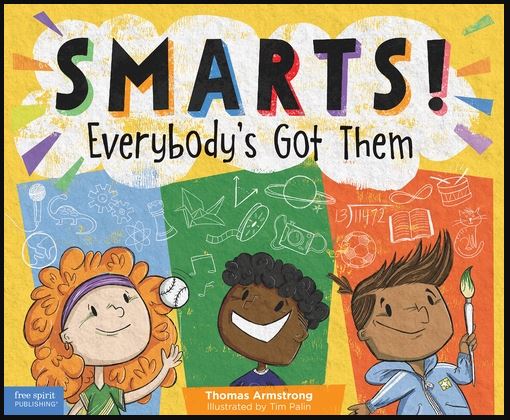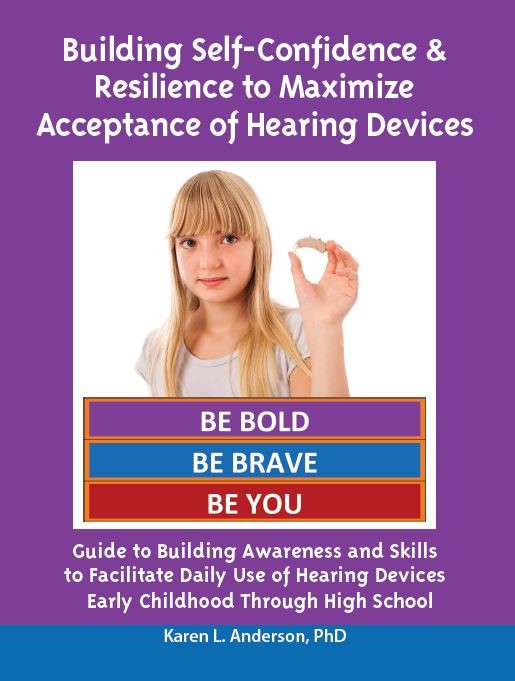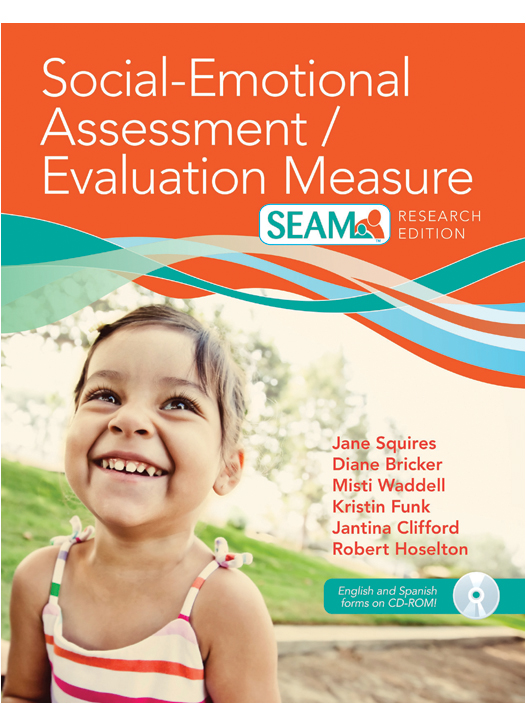Related Products
For Professionals
- Amplification
- Assessment of Student Skills, Challenges, Needs
- Early Childhood: Infants, Toddlers, Preschool
- Hearing Loss – Identification, Impact and Next Steps
- IDEA Law Summary Information
- Language and Speech Development Issues
- Legal Issues in Serving Children with Hearing Loss
- Listening (Auditory Skills) Development
- Planning to Meet Student Needs
- Self-Advocacy Skills for Students with Hearing Loss
- Self-Concept: How the Child with Hearing Loss Sees Himself
- Social Skills
- Speech Perception & Learning
Related Teacher Tools Takeout Items
Self-Concept: School-Age Children with Hearing Loss
SCHOOL-AGE CHILDREN: A time of uncertainty

As the child enters school, his self-concept is influenced not only by his parents, but also by a growing circle of other people, including teachers and friends. The child gets feedback from many people on his physical appearance and his school, athletic, and social abilities. All of this feedback influences what he thinks of himself, or his self-concept. A healthy self-concept does not mean that a child thinks he is better than anyone else or can do everything perfectly. It means that he likes himself, feels accepted by family and friends, and believes that he can do things well.
When a child enters school, he will likely feel unsure of himself as he adjusts to a new environment. He will be evaluated by many people, including peers, teachers, and other adults. He will probably feel a lot of pressure to fit in and succeed. To handle the pressure, he needs unconditional support from his parents and school staff. With encouragement, he can conquer tough times in this stage of growth and transition. However, adults cannot just tell a child that he is great. A child needs not only to hear words, but also to feel within himself that he is a worthwhile, competent person.
What You Can Do to Support a Positive Self-Concept in School-Age Children
The following are some strategies to help parents and school staff to nurture the child’s healthy self-concept.

Send a positive message that you like him and want to be with him. Focus on his strengths and avoid criticizing and lecturing. Do not compare the child with others and do not let the child compare himself with others. Give the child your full attention without disruptions. Sometimes it is hard to listen when you are busy, but try your best to do so.
Support the child’s interests and talents. Children need to feel that they are capable of accomplishing different tasks. This feeling of competence is particularly important to a child’s self-concept starting around age 8. You can support the child’s feeling of competence by providing learning opportunities in areas that are important to the child. Take time to find out what the child likes and is good at. Then, offer many chances for him to practice and succeed with a variety of experiences. Avoid judging or criticizing the child’s interests or performance. This will only spoil your relationship with him and will cause him to feel inferior.
Praise the child. Let the child know she does things well by praising him. Be specific in your praise. For example, instead of just saying, “Great game,” describe what you see: “You really kept up your energy and went after the ball all the way to the end of the game. You must be proud of yourself.” Also, do not focus your praise so much on success or completion, which could feel like pressure to achieve. Instead, focus on effort. For example, do not just say, “Good job getting an A on your math test.” Instead say, “You were persistent and studied hard to get a good grade on your math test. That’s what I call perseverance.” When you focus on effort, the child can enjoy little accomplishments on the way to completing a bigger task. With a focus on effort, you are also teaching the child how to deal with obstacles or setbacks—by trying again or working through a problem. As the child gets older, let him tell you what he likes about his accomplishment, what he is proud of. As a child moves towards adolescence, his own self-evaluation becomes more important to his self-concept. He needs to learn how to emphasize his accomplishments and strengths.

Teach the child social skills to make and keep friends.
Being accepted by peers is one of the greatest influences on a child’s self-concept, so it is very important for a child to learn how to make and keep friends. Parents and school staff teach children a lot of these skills by modeling – from watching how you meet people and talk to them. Recognize that it is important for him to feel that he fits in. He and other children may do things that seem silly to you. If the behavior is not dangerous or offensive, do not sweat the small stuff. When he has a problem with a friend, do not tell him what to do, but listen to him, acknowledge his feelings, and help him think through the problem.
Help the child learn to manage feelings and problem solve. Being able to manage feelings work out problems are important skills in controlling oneself and getting along with others. When a child talks about how he is feeling, listen. Show you are listening by reflecting what he says. For example, say, “It sounds like you’re proud of winning the game.” If the child is upset, gently coach him in problem solving. First, help your child identify situation. For example, say, “It sounds like you’re upset because Jamie didn’t include you in the game.” Then help him brainstorm solutions to the situation at hand. Talk about the solutions he comes up with and have him pick one.
Set clear, reasonable limits and expectations. Clear, reasonable limits help a child learn how to make choices and control himself. Reasonable expectations give him a clear sense of what he should be doing and an idea of how well it should be done. These are skills he will use in making friends and accomplishing things. Reasonable rules appropriate to the child’s age allow him to make some choices. When your child helps make the rules and select the order or type of tasks to be done, he will be more likely to follow them. Once you have established limits, make sure to enforce them consistently.
Above information source: This document is FCS2205, one of a series of the Family Youth and Community Sciences Department, Florida Cooperative Extension Service, Institute of Food and Agricultural Sciences, University of Florida. Original publication date February 7, 2003. Reviewed February 27, 2007 by Heidi Liss Radunovich. Visit the EDIS Web Site at
http://edis.ifas.ufl.edu.
Posted by Karen L. Anderson, PhD, Supporting Success for Children with Hearing Loss, March 26, 2013



